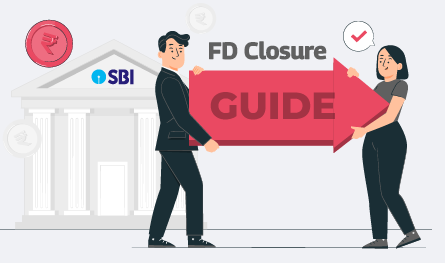Guide to Section 166 of Motor Vehicle Act, 1988 and Claims that Come Under Assessment
.webp)
Section 166 of the Motor Vehicle Act 1988 discusses those who are eligible to apply for compensation under the Motor Accidents Claims Tribunal (MACT). This act allows insurance policyholders to get a clear understanding of the facts that can help them file a case if there is a need. Read on to know the Act in detail.
.webp)
- What is the Motor Vehicles Act, 1988?
- How is the MV Act, 1988 important for accident victims to avail rightful compensation?
- What is section 166 Motor Vehicle Act 1988?
- How can you claim this compensation?
- When can you claim compensation?
- Types of claims that come under assessment
- Understand more about third-party insurance
- Offenses and penalties under the Section 166 Motor Vehicles Act, 1988
- What is the Claim Amount that is Paid as Compensation?
- What are the Offenses Categorized u/s 166 of the MV Act?
- What Compensations are Allowed to the Victims Under Section 166 of the MV Act?
- Is there a Prescribed time to Claim the Compensation by the Claimant?
What is the Motor Vehicles Act, 1988?
The Motor Vehicles Act was first introduced in 1914 to address the grievances of people who wanted to get financial protection in case of accidents. It was replaced in 1934 to regulate road transport. In 1988, the Government of India made some changes in the act to protect the interests of motor vehicle owners.
A motor insurance plan is necessary for you if you have a vehicle be it a two-wheeler or a car. It not only provides financial protection in case of accidents and other damage but is also a legal obligation. The Motor Vehicle Act 166 comes with salient features which look into the interest of the policyholders.
This act comprehensively covers all the aspects of road transport on the roads which ensure the welfare of the third party. If you are severely affected by accidents and injuries, then you can appeal under this act. A motor vehicle tribunal will govern the cases that come under the Motor Vehicles Act, 1988. The primary objective of this tribunal is to ensure the speedy trial of cases to make sure that you get the right justice on time. It deals with the cases that involve injuries, loss of life, or property allowing you to obtain maximum compensation.
How is the MV Act, 1988 important for accident victims to avail rightful compensation?
The rising number of accidents on the Indian roads is not new. There have been instances of road accidents and accidental deaths caused by rash driving and bad road conditions in the country. Road accidents at times can lead to severe damage to both people and property. The Motor Vehicle Act of 1988 is a legal platform that addresses the grievances of people who suffer losses in such accidents. The MV Act safeguards the interests of the commuters on the road who are innocent and also punishes the offenders. It also ensures that the victims receive the required compensation.
The MV Act prescribes safe road tips and guidelines to maintain while driving a vehicle and addresses the situation aptly in the event of an unfortunate incident. For this, the victim or the party who incurs losses/injuries must apply to the Motor Accidents Claim Tribunal (MACT). The laws about the claimants to apply for road accident claims under MACT are mentioned in section 166 of the Motor Vehicle Act, 1988.
What is section 166 Motor Vehicle Act 1988?
The Section 166 Motor Act 1988 talks about who can apply for compensation in Motor Accidents Claims Tribunal (MACT). It allows you to get a clear picture of the facts in detail that will help file a case in case there is a need.
You can claim compensation for the following cases in the tribunal.
- If you have sustained an injury
- If you are the owner of the property
- When you are the legal representative of a person who died in an accident
- If you are an agent authorized by the injured person
How can you claim this compensation?
You can claim compensation by applying with either one of the following tribunal locations.
- If you are the owner of the vehicle and residing in the claims tribunal area
- If you are a claimant and resides near the claims tribunal
- The claims tribunal where the accident took place
When can you claim compensation?
There is no time limit prescribed by sec 166 of motor vehicle act if you want to file a case. On the other hand, delaying too much will lead to doubts and suspicion in the minds of tribunal members. Therefore, you should file a case as soon as possible that will help receive the compensation in a quick turnaround time. The tribunal will provide compensation in the following cases.
- When the accident caused injury to your body
- Death of your blood relatives
- If the accident has caused severe damage to your property
- When accidents occur mainly due to the use of motor vehicles
Types of claims that come under assessment
1. No-fault liability
The no-fault liability in motor vehicle act comes under section of act 140. If you are a claimant, then there is no need to prove that the fault lies with the other party. There is no joint liability and it arises when you are permanently disabled. When your family member dies, then you can claim Rs, 50, 000, and Rs. 25,000 in case of permanent disability.
2. Hit and run
It comes under section 161 of India Motor vehicle 1988 act and you can claim the amount for your injuries when the prime accused runs away from the accident area. You will obtain compensation of Rs. 12500 and your legal representative will get Rs. 25000 upon your death.
Know more about damage assessment
If you are suffering from physical damages due to accidents, then you should know more about the damage assessment in detail. The tribunal will classify the damage under pecuniary damage and non-pecuniary damage. As a victim, you should consult with a lawyer to know the salient features of motor vehicle act 1988 before filing a case. This will help in filing your case with ease.
Understand more about third-party insurance
If you are a vehicle owner, then you should understand more about third party insurance. It is necessary for you when you have a bike or a car. Your insurer will pay the amount to the third-party when your vehicle causes injury to someone on the road. Most insurance companies offer third-party and comprehensive insurance policy which are available online too.
Offenses and penalties under the Section 166 Motor Vehicles Act, 1988
- You shouldn’t drive a vehicle without a license and before becoming a major
- You shouldn’t ride a vehicle under the influence of alcohol and drugs
- Over speeding is an offence and should be avoided on the roads
- Driving your vehicle when you are suffering from any medical condition and health issues
- Not wearing helmet in a two-wheeler and seat belt in a car
You should follow the traffic and safety rules while riding a vehicle on the road to avoid fines and penalties.
What is the Claim Amount that is Paid as Compensation?
The amount that can be claimed as compensation by the claimant from the vehicle owner or the insurer is laid down under section 163A of the MV Act, 1988.
- A minimum compensation of INR 50,000 is to be paid in case of accidental death of the victim
- A minimum compensation of INR 25,000 is to be paid in case the victim suffers a permanent disability
- The victim may be offered added compensation by the MACT depending on a particular case
What are the Offenses Categorized u/s 166 of the MV Act?
Here are the offenses mentioned u/s 166 of the MV Act:
- Without license driving – If a person drives a vehicle without a valid and active license, it is an offense under sec 166 of the MV Act
- Driving under medical conditions – If someone drives a vehicle while the person is suffering from a medical condition that prohibits driving, it is considered an offense under the section
- Helmet – Driving without wearing a helmet on a two-wheeler is also considered an offense under this section
- Seat belt – In the case of four-wheelers, not wearing a seat belt is considered an offense u/s 166 of the MV Act
- Speed – If a vehicle owner drives a vehicle above the prescribed speed limit, it is again regarded as an offense u/s 166
- Minor driving – If minors drive a vehicle on Indian roads, it is an act of crime under section 166 of the MV Act
What Compensations are Allowed to the Victims Under Section 166 of the MV Act?
The compensation provided to the victims who suffer in an accident depends on the condition of the injury and other factors. According to the circumstances and the provisions, the claimants are paid a claim. Here are some general points considered:
- The compensation offered to the claimant considers the expenses incurred towards the treatment of the injuries, medicines, hospitalization, and post-hospitalization costs of the victim
- The nature and the severity of the injuries that are incurred by the victim also contribute to deciding the compensation paid to the person. If the victim suffers permanent disability or severe damages, the compensation might increase
- Further, any kind of disability faced by the victim due to the accident is also compensated accordingly
- Similarly, the compensation paid may be reduced proportionately if the victim is a party to the negligence causing the accident.
Is there a Prescribed time to Claim the Compensation by the Claimant?
There is no prescribed time limit for the claimant to apply for a claim. However, it is best to do so within a reasonable period. Delaying the process unnecessarily may raise doubts in the MACT.
Compensation is provided to the claimant by the MACT under the below conditions:
- If an accident has caused bodily injury or death of the victim
- If an accident has caused damage/loss to the property of the victim
- If an accident has occurred due to the fault of the vehicle
FAQs: 166 of Motor Vehicle Act, 1988
Section 166 of the MV Act was first initiated in 1914.
The act considered two areas of an accident that may have caused injury and damage to people and property. They are – taking appropriate action against the culprit who is involved in the accident and offering compensation to the victim.
Yes, taking pictures or creating videos of the accident scene is important if you are the victim. Pictures or videos taken by bystanders are also good for the police to verify the situation of the accident and help in the investigation.
Yes, calling the police under feasible circumstances is better. The call can be recorded and used as evidence later.

Author Bio
Paybima Team
Paybima is an Indian insurance aggregator on a mission to make insurance simple for people. Paybima is the Digital arm of the already established and trusted Mahindra Insurance Brokers Ltd., a reputed name in the insurance broking industry with 17 years of experience. Paybima promises you the easy-to-access online platform to buy insurance policies, and also extend their unrelented assistance with all your policy related queries and services.
Other Motor Insurance Products
Latest Post

Investing in LIC policies is important to secure our lives and those of our family members. To get the maximum benefit from an LIC policy, it is important to pay the premium regularly. Also, keeping the premium payment receipt safe is equally important. However, if you lose the LIC premium payment receipt, you can download it online by following simple steps.


FDs or fixed deposits are a secure investment option that most people in India prefer to invest in. However, when it comes to breaking an FD, many of you may find it difficult, especially if you want to do on online. The step-by-step guide to breaking an SBI FD online is mentioned in this post and will help you with the process. Read on to know more.

.png)
A bike RC or registration certificate is a document that serves as proof of ownership of the bike and is required to transfer the registration from one state to another. The bike RC transfer process can be completed online and offline by following simple steps. This post will guide you through the bike RC transfer process and the charges and documents required.


Until recently health insurance has been overlooked by many as not a very significant requirement of life. Although the life insurance of the breadwinner has always been an area of prime importance for many families, the health insurance of the entire family has been neglected. However, things are changing, especially after COVID-19, and family health plans are getting prominence. Moreover, the high cost of medical treatments and the rising number of lethal diseases are other reasons for prioritizing health insurance. In this post, we are discussing the top 10 health insurance companies in India in terms of their claim settlement ratio (CSR).


Health is an important yet unpredictable aspect of life. You may be in the best of your health one day and fall seriously sick the other. This makes the importance of health insurance policies evident. Cashless policies are best in this regard to serve the purpose well.


